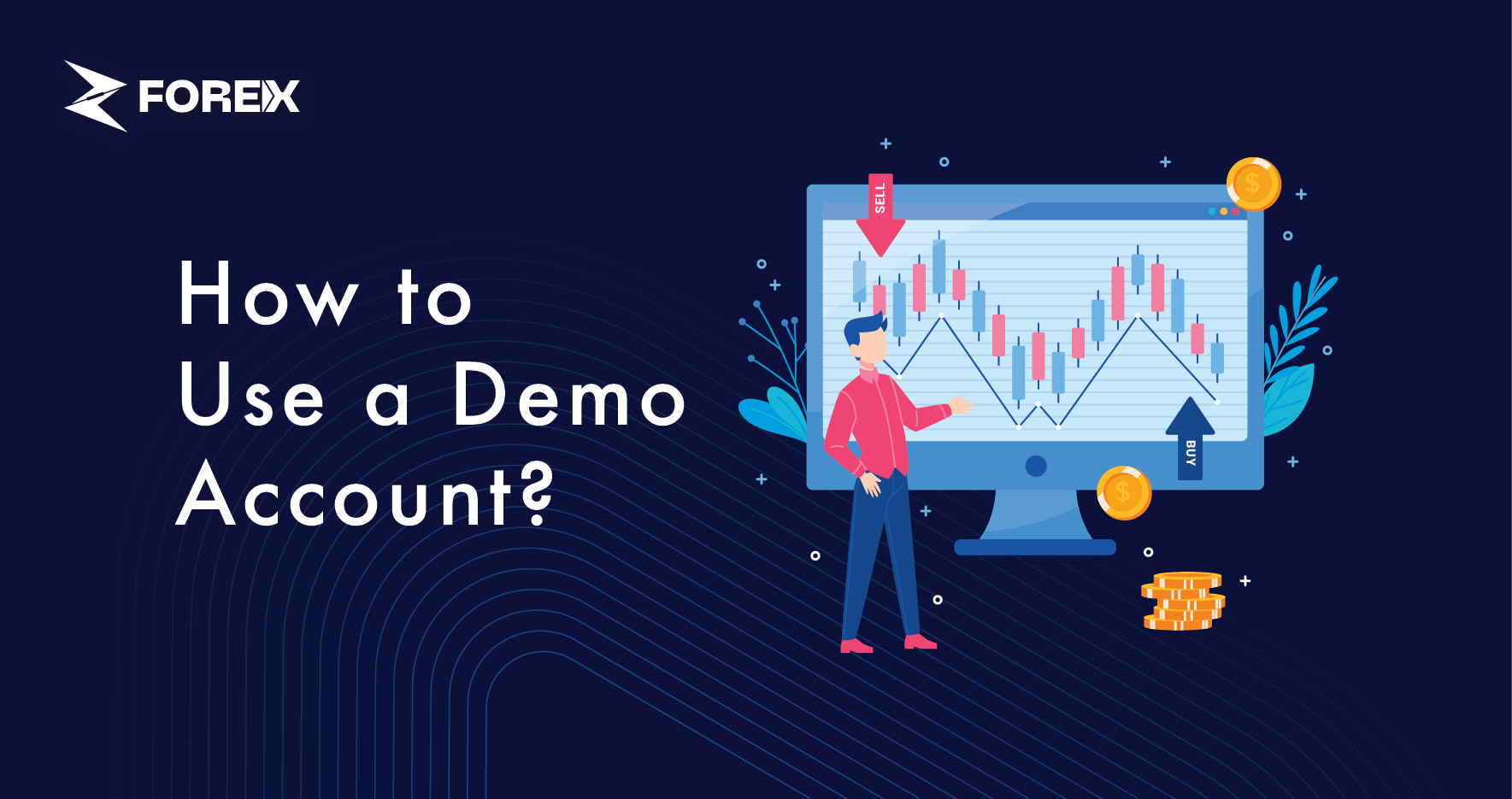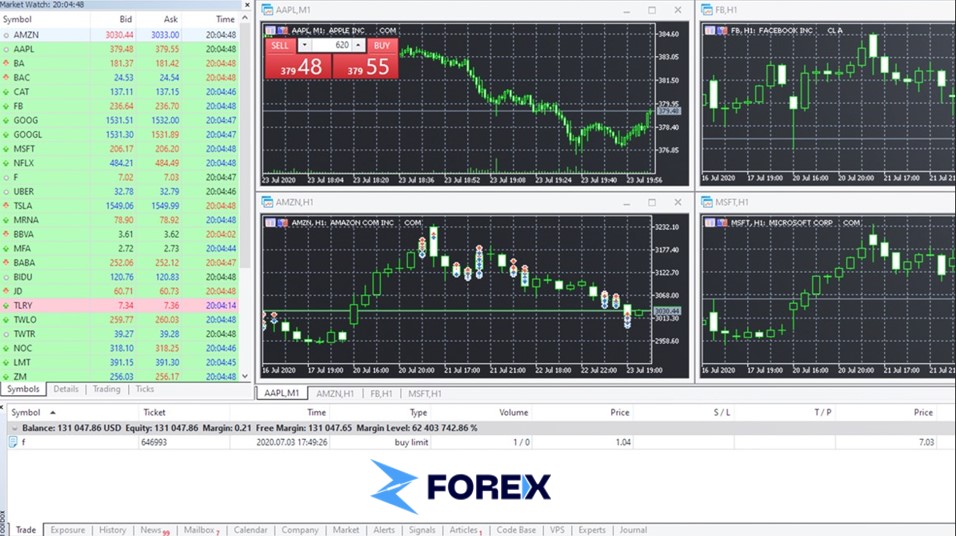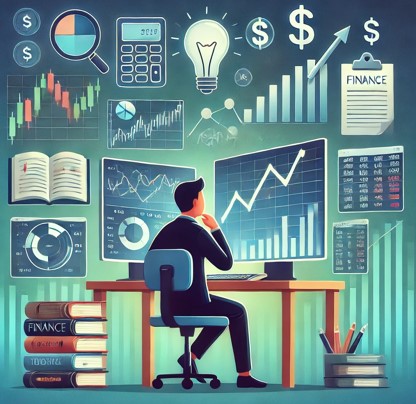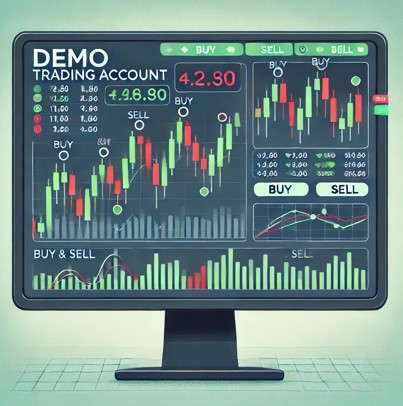
In the ecosystem of Forex and CFD trading, the journey to becoming a successful trader is filled with challenges and learning opportunities. One of the most valuable tools in a trader's arsenal is the demo trading account. These accounts serve as a virtual training ground, allowing both novice and experienced traders to explore the intricacies of the financial markets without risking real money.
Demo accounts offer a realistic simulation of the trading environment, complete with real-time market data, which makes them an indispensable resource for anyone looking to refine their trading skills.
In this article, we will delve into the advantages and weaknesses of demo trading accounts, providing insights into how they can be used effectively to enhance trading proficiency and prepare for the complexities of live trading.
A demo trading account is a simulation of a real trading environment that allows traders to practice buying and selling financial instruments without risking actual money. These accounts are equipped with virtual funds and provide access to real-time market data, enabling traders to experience the dynamics of the financial markets. The primary purpose of demo accounts is to offer a safe and risk-free platform for traders to develop their trading skills, test strategies, and gain familiarity with the trading platform and tools provided by the broker.
The concept of demo trading has its roots in the traditional practice of paper trading, where traders would manually record their trades on paper to test their strategies. With the advent of the internet and the rise of online trading platforms in the 2000s, brokers began offering electronic demo accounts. These accounts provided a more realistic and convenient way for traders to simulate trading, making it easier to practice and refine their techniques without the need for physical paperwork.

Demo accounts are designed to closely replicate the conditions of real trading environments. They provide access to the same trading platforms, instruments, and market data that traders would encounter in a live account. This includes real-time quotes, charts, and news feeds, as well as the ability to execute trades and manage positions. The key difference lies in the use of virtual currency, which eliminates the financial risk and allows traders to focus on learning and strategy development.
Demo trading accounts offer a plethora of benefits that cater to both novice and seasoned traders. These accounts provide a unique opportunity to explore the financial markets without the fear of losing capital, allowing traders to focus on honing their skills and strategies. Let's delve into the key advantages of utilizing demo trading accounts:
 No Financial Risk for Traders:
No Financial Risk for Traders:
The most significant advantage of a demo account is the elimination of financial risk. Traders can experiment with various trading strategies and ideas without the worry of incurring losses.
Opportunity to Practice Trading Strategies:
Demo accounts serve as the perfect platform for testing and refining trading strategies. Traders can evaluate the effectiveness of their approaches and make necessary adjustments before applying them in live trading scenarios.
Enhancing Technical, Fundamental, and Data Analysis Skills:
Demo trading allows traders to improve their analytical skills by practicing technical and fundamental analysis without the pressure of real-market consequences.
Building Interpersonal Skills like Patience and Flexibility:
Trading in a simulated environment helps traders develop crucial interpersonal skills such as patience, discipline, and adaptability, which are essential for success in the volatile world of trading.
 Trying Out New Strategies Without Financial Consequences:
Trying Out New Strategies Without Financial Consequences:
Traders can explore and experiment with new trading strategies and techniques without the fear of losing money.
Familiarizing with Different Trading Platforms and Tools:
Demo accounts provide an excellent opportunity for traders to get acquainted with various trading platforms, tools, and features offered by brokers, ensuring a smoother transition to live trading.
Gaining Confidence in Trading Decisions Without the Pressure of Losing Money:
By practicing in a demo environment, traders can build confidence in their decision-making abilities and trading instincts.
Understanding Market Dynamics in a Stress-Free Environment: Demo trading allows traders to observe and understand market dynamics, trends, and patterns in a relaxed setting, fostering a deeper comprehension of market behavior.
Serving as an Educational Platform for Learning Market Mechanics:
Demo accounts are invaluable educational tools that provide insights into the mechanics of the financial markets, enabling traders to learn the nuances of trading.
Access to Real-Time Market Data and News:
Traders can benefit from access to real-time market data and news, which is crucial for making informed trading decisions and staying updated with market developments.
While demo trading accounts offer numerous advantages, they also come with certain limitations that traders should be aware of. These weaknesses can impact the overall effectiveness of demo trading as a preparatory tool for live trading. Let's explore the key drawbacks of demo trading accounts:
Absence of Real Financial Risk May Lead to Complacency:
The lack of real money at stake can result in a lackadaisical approach to trading, where traders may not take their decisions as seriously as they would in a live environment.
Different Emotional Response Compared to Real Trading:
The absence of financial consequences can lead to an emotional detachment that does not accurately represent the psychological pressures of real trading.
Ideal Execution Conditions in Demo Accounts May Not Reflect Real Market Conditions:
Orders in demo accounts are often executed at the desired price without slippage, which is not always the case in live trading.
Potential for Unrealistic Expectations About Order Execution:
Traders may develop unrealistic expectations about order execution, leading to disappointment and frustration when transitioning to a live account.
Success in a Demo Account May Not Translate to Success in Real Trading:
Achieving success in a demo environment does not guarantee similar results in live trading, where real money and emotions are involved.
Risk of Developing Overconfidence Without Experiencing Real Losses:
Traders may become overconfident in their abilities without having faced the consequences of real losses, which can be detrimental when they start trading with real capital.
Trading with Virtual Money Doesn't Simulate the Pressure of Managing Real Capital:
The absence of real financial risk can prevent traders from experiencing the true pressures and challenges of managing real capital.
Potential Underestimation of Psychological Impact of Real-Money Trading:
Traders may underestimate the emotional and psychological impact of trading with real money, which can lead to unpreparedness and anxiety when making the transition to live trading.
To maximize the benefits of demo trading accounts and mitigate their weaknesses, it's essential to approach them with a strategic mindset. Here are some tips on how to make the most of your risk-free trading experience:
Establish clear, achievable goals for your demo trading practice, such as a target return or a specific number of trades to execute.
Simulate real trading conditions as closely as possible, including realistic trade sizes, risk management rules, and market conditions.
Treat the demo account as a learning platform where you can experiment with different strategies and techniques without fear of losing money.
Continuously analyze your trading performance and refine your strategies based on the insights gained from your demo trading experience.
Maintain a detailed trading journal to record your trades, strategies, and emotional responses during your demo trading sessions.
Review your journal regularly to identify patterns in your trading behavior, areas for improvement, and emotional triggers that may affect your decision-making.
Once you feel confident and consistent in your demo trading performance, start planning your transition to live trading.
Begin with small amounts of real capital and gradually increase your exposure as you become more comfortable and successful in the live trading environment.
Ensure that your transition plan includes clear risk management guidelines and a strategy for coping with the emotional aspects of trading with real money.
By following these tips, you can leverage your demo trading account as an effective tool for developing your trading skills, refining your strategies, and preparing for the challenges of live trading.
A demo trading account is a simulated trading platform that allows traders to practice buying and selling financial instruments without risking real money. It uses virtual funds and provides access to real-time market data, mirroring the conditions of a live trading environment.
The duration of access to a demo platform varies depending on the broker. As zForex, we provide a 30-day duration for this trial period.
Yes, you can reset your virtual balance if you deplete the virtual funds. This enables you to continue practicing your trading strategies without any interruptions.
While demo accounts aim to replicate live market conditions as closely as possible, there may be some differences in execution speed, spreads, and slippage. These discrepancies are due to the absence of real money being traded in the demo environment.
The availability of financial instruments in a demo trading account depends on the broker. Most brokers offer a wide range of instruments, including forex pairs, stocks, commodities, and indices, similar to their live trading accounts.
Switching to a live trading account should be based on your comfort level and confidence in your trading skills. It's advisable to transition to live trading only after you have consistently achieved positive results in your demo account and have a solid trading plan in place.
 Silver Rally Ahead? Supply Deficit Meets Rising Demand
Silver Rally Ahead? Supply Deficit Meets Rising Demand
A new silver rally may be forming as supply deficits deepen and China’s demand grows. Here’s what is driving the momentum.
Detail Fed Rate Cuts 2026: How to Position Now
Fed Rate Cuts 2026: How to Position Now
Fed rate cuts in 2026 could reshape markets. See expectations, asset impact, and positioning strategies for bonds, gold, stocks, and USD.
Detail Analyzing the U.S. Labor Market Outlook for 2026
Analyzing the U.S. Labor Market Outlook for 2026
Year’s first jobs report looked reassuring. A closer breakdown, however, tells a more layered story about the direction of the labor market.
DetailThen Join Our Telegram Channel and Subscribe Our Trading Signals Newsletter for Free!
Join Us On Telegram!